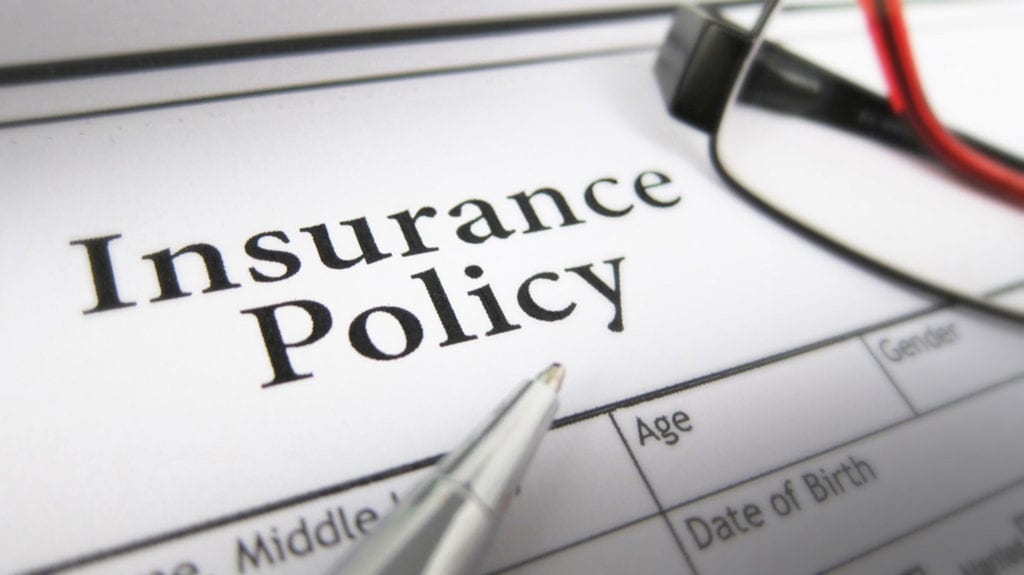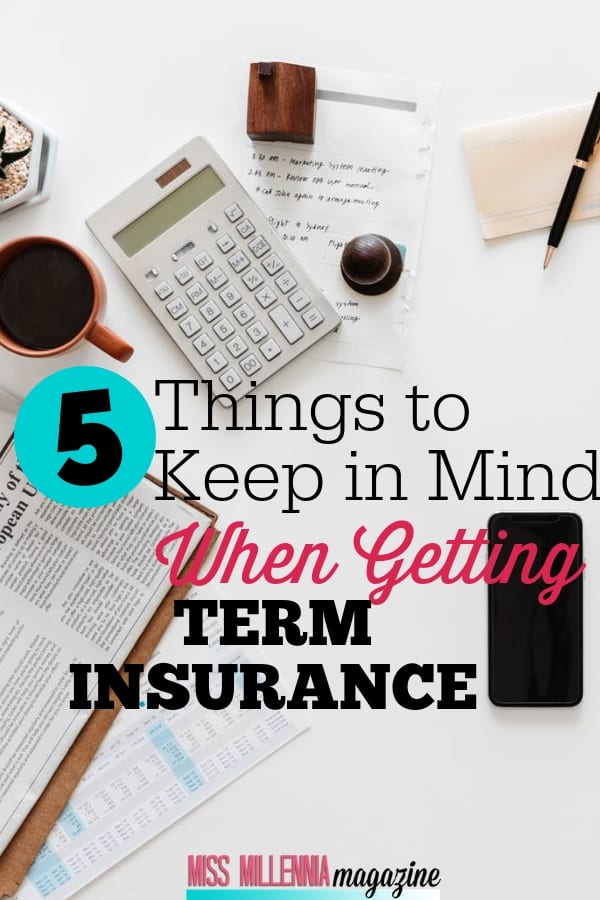5 Things to Keep in Mind When Getting Term Insurance
Term insurance is perhaps the most clear-cut type of life insurance policy, which provides coverage for a designated period, or a specified “term” and protects loved ones after the insured dies. It has no cash value and is insurance protection that pays the set sum of the policy to the named beneficiary if the insured dies during a specified period and the policy is active. Let’s look at five things that you should keep in mind when getting term insurance.
1. Who Should Obtain Term Insurance
Term insurance is ideal for any individual seeking to provide income replacement for their families in the event of their death. Anyone in need of temporary life insurance, for covering something like their child’s college expenses in the event of their death is a good prospect for term insurance. If you cannot afford the premiums for whole life insurance, term insurance offers a cheaper option that can match your long-term needs. You can get great coverage with a one-year or five-year renewable term insurance at a low premium cost.

2. The Different Types of Term Policies
There are several types of term policies available for you to choose from, each offering different benefits. The most common type of term policy is guaranteed level term insurance and is characterized by yearly premiums remaining the same during the life of the policy. An annual renewable term policy is a short-term life insurance policy that is renewable annually for a designated length of time and at which point the policyholder’s premium will increase. Return of premium term policy guarantees a refund of the premiums that were paid in for the policy as long as the policyholder survives throughout the entire length of the policy.
Decreasing term policy pays a lower claim, either monthly or annually as the policy ages or throughout the plan. A modified term policy utilizes an alternative payment arrangement in which coverage is established for a set period, and premiums increase or decrease as time passes. Keep in mind that term insurance has to be renewed or the coverage ends when the term of the policy expires.
3. Advantages of Term Life
There are many benefits to be had from obtaining a term insurance policy:
- It allows an individual to acquire the most significant death benefit at a premium that is cost-effective. Still, keep in mind that the term premiums increase at each renewal. Term insurance could end up being more expensive than a whole life policy that was issued at the same age.
- It is the ideal alternative for temporary life insurance needs, especially if protection is required for less than 10 years. This makes it a flexible option that is also affordable.
- Renewable and convertible terms have conversion features that enable policyholders to get higher death protection than they perhaps could readily afford, and later, they could lock-in their premiums and build cash values when they can afford increased premiums.
- Term insurance proceeds pass directly to the beneficiary and without the need for the probate estate unless the estate is designated as the beneficiary of the policy. This means that the named beneficiary can receive the proceeds quickly upon the policy owner’s death, without any delays related to the administration of the estate.
- It is a good option for young people or young families because it is typically less expensive than whole life insurance. It doesn’t build cash value and only covers a specific period of time, which makes it a better value for younger individuals who could be overwhelmed with financial expenses related to childcare, student loan, college tuition, auto loan and even retirement.
4. Disadvantages of Term Life
Despite its many benefits, term insurance also comes with certain disadvantages:
- Unlike permanent coverage, term insurance lacks tax-free, automatic savings.
- Term insurance becomes prohibitively expensive, at later ages, which can render it useless if it cannot be maintained until the date it is most needed.
- Term insurance does not accumulate cash value or comes with a loan component.
- The insured’s coverage is not for life; instead, the term insurance only provides coverage for the term of the contract.
5. How to Choose the Best Term Insurance Plan
There are some factors to consider when deciding on a term insurance plan:
- Your purchase should be need-based, so consider your financial obligations.
- Finding a reliable insurance company that you can trust.
- The extent of how much coverage you need.
- The ratio of claim settlements of the insurance company.
- How online or offline term plans differ and which could benefit you more.
- Assess premiums and compare the benefits of a term policy, and take inflation into account.
It is best to make an informed decision when getting term insurance. There are key factors that you should consider before making a final decision about which term policy best fit your coverage goals. Assessing your need for term insurance, knowing the types of term policies available from which to choose, the pros and cons that are associated with term insurance, as well as how to select the best plan that matches your specific needs are all important things to consider when getting term insurance.








